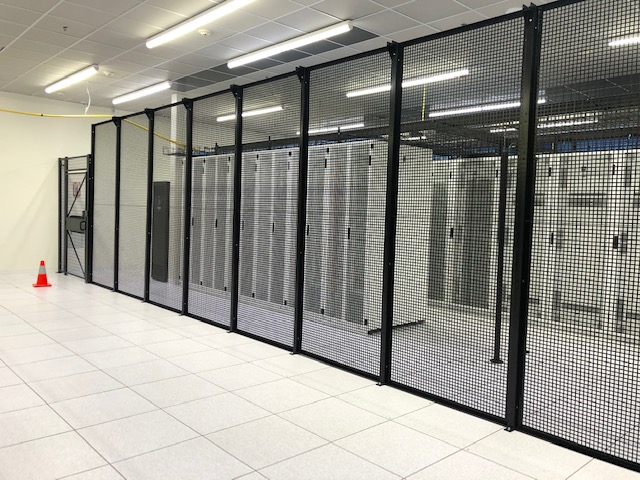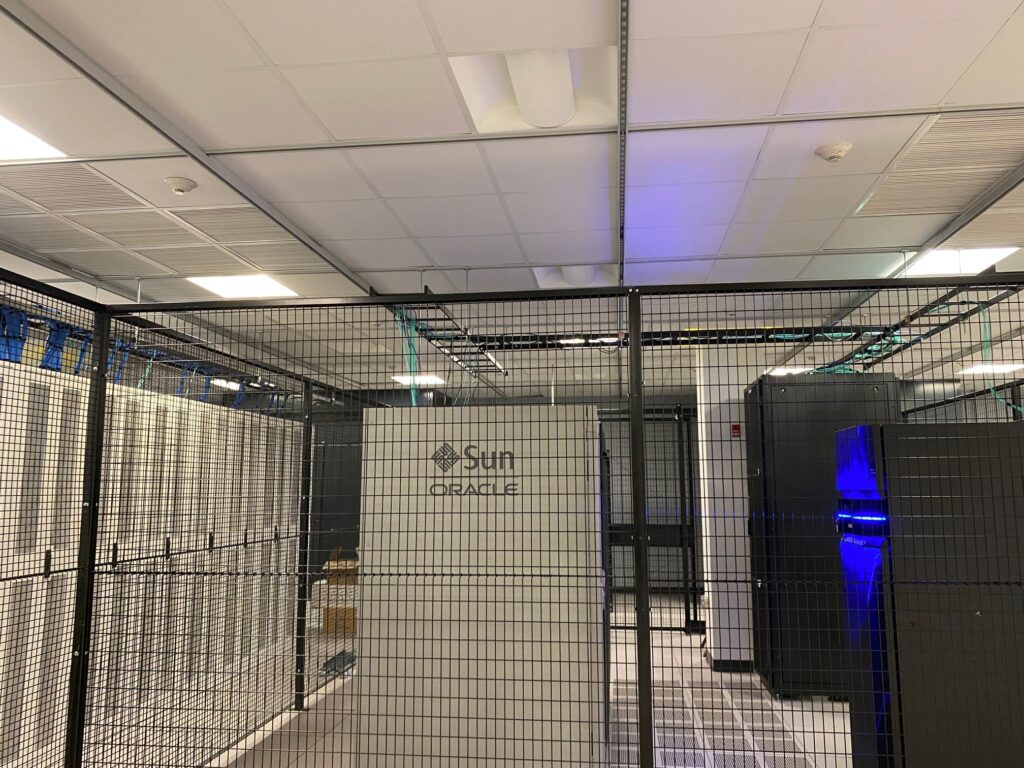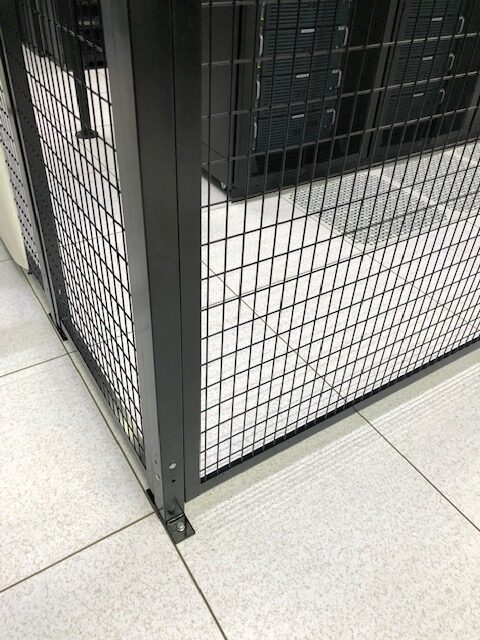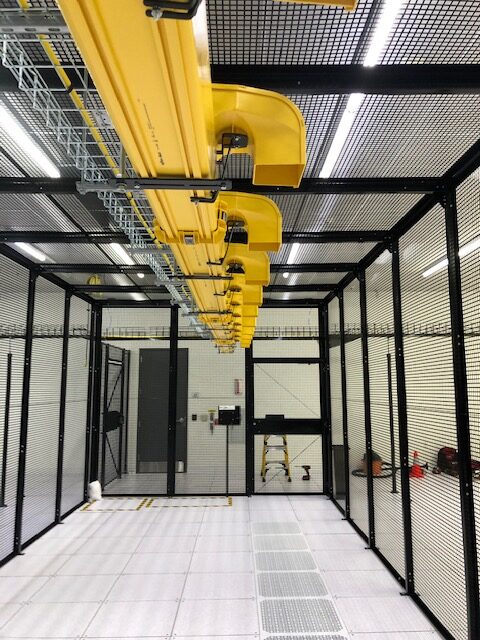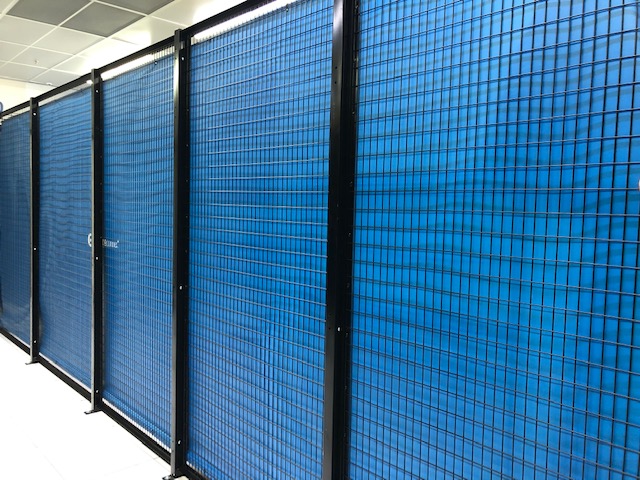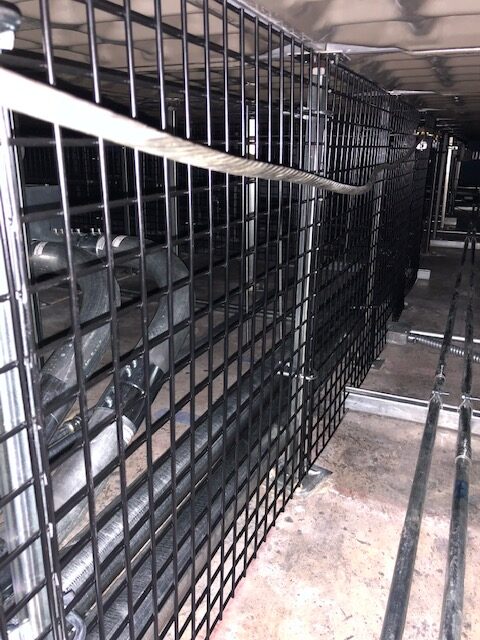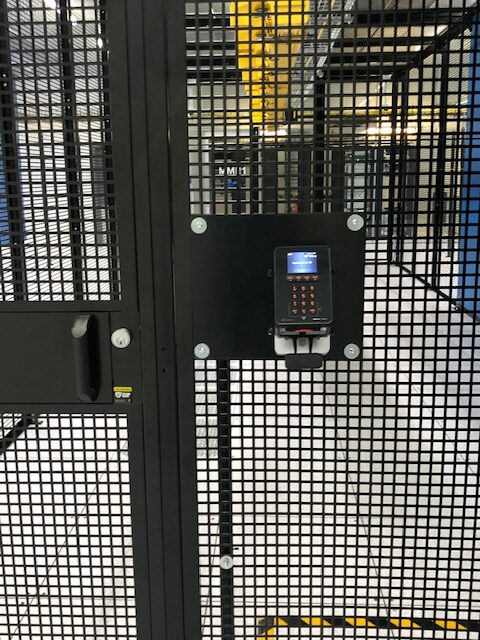What is a Data Center Partition?
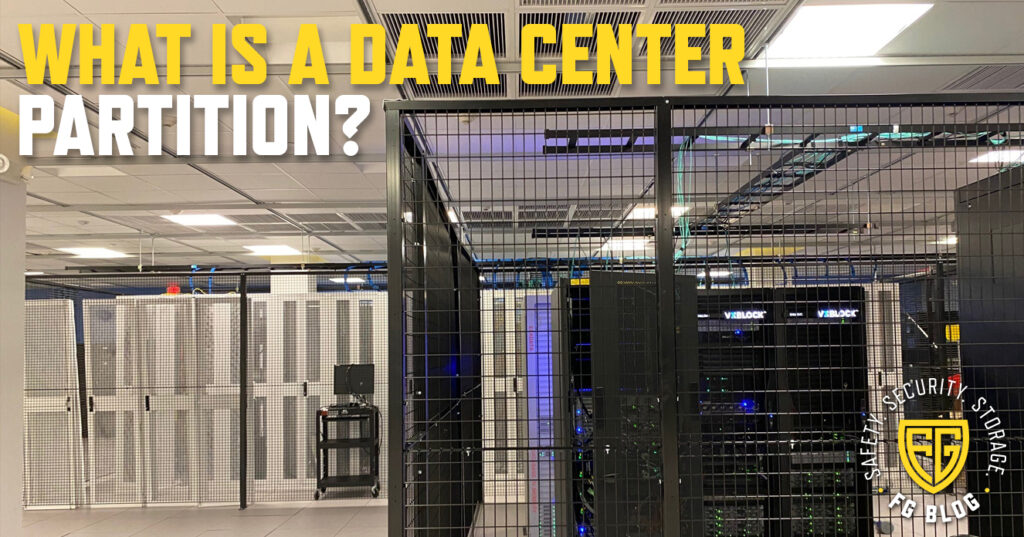
First of all, it might be helpful to know what a data center is. A data center is a building, or a designated space within a building, that houses computer systems and servers. Data centers are typically used by companies large and small to collect, store, process, and distribute large amounts of data.
Think of it this way: a data center functions as a company’s brain, storing and processing information. And, just like a real brain, a data center needs protection. If the data center is a company’s brain, then a data center partition is its helmet. That’s where companies like Folding Guard come in – helping to protect your data center infrastructure with machine guarding.
Data centers store tons of information, much of it sensitive information, and it’s important to keep that data safe and secure. A data center partition is a structure that encompasses the servers in a data center, cutting off access to the machines for would-be intruders and spies. There are a few different kinds of data center partitions, but the most customizable and practical for a typical data center is a welded wire mesh partition, like Folding Guard’s own Qwik-Fence® or Saf-T-Fence® models.

Custom Saf-T-Fence® Partition 
Qwik-Fence® Partitions
Why Welded Wire Mesh?
Welded wire mesh is preferable in a data center for a number of reasons. Firstly, it allows for ventilation around the servers. Whether you’re reading this on your phone or your computer, you’ve definitely known your device to heat up when processing several tasks at once, or when forced to function for an extended period of time.
Now, imagine an entire room, or even an entire building, filled with computer servers constantly working. To ward off the inevitable heat and ensure that the machines can continue to function properly, most of these centers are temperature controlled. A wire mesh partition ensures data server protection by guaranteeing that proper ventilation and airflow can take place, without sacrificing the security of the servers.
Customizable to Fit Your Needs
Another desirable feature of a welded wire partition like Qwik-Fence® or Saf-T-Fence® is the capacity for customization. Firstly, the gaps in the wire mesh, which are typically 3 inches by 1.5 inches, can be customized to a smaller specification if a client is particularly worried about security.
Our standard 3 by 1.5 inch gap is certainly enough to ward off any prodding fingers, but the smaller the gap, the harder it is to stick anything – even a USB drive – through the partition. Additionally, there are typically about 6 inches in between the partition and the machines to prevent tampering.
Another customizable feature is the actual size of the partition. A standard partition is typically 10 feet deep, 20 feet wide, and 8 feet high. But with Qwik-Fence’s simple installation, it can easily be expanded to accommodate a growing business.
Because this material is so customizable, it can also be cut and used under the subfloor tiles that house a data center’s wiring, in case a client is worried about someone popping the floor out and sabotaging the machines in that way.
Aesthetically, all of our models are designed to maintain the industry standard while providing the best protection. Qwik-Fence®, for example, is normally galvanized when used for other applications. When customized for a data center, however, we finish it with a black powder coat so that it matches the machines and creates a streamlined look throughout the server room.

Standard 2″ x 6″ footplate uses minimal floor space 
Custom Saf-T-Fence® Partitions at a data center 
Angle panel frame accommodates double-wall polycarbonate, privacy screen, etc. 
Qwik-Fence® Partition used under a subfloor tile 
Our partitions can be equipped with a wide variety of locking options for maximum security
In the past year, companies have had to move their businesses online in a way that no one could have anticipated. Chances are, if a company didn’t already have a data center, they have one now, and the companies that already had data centers have had to expand. Don’t leave your company’s brain without a helmet; instead get a quote for our Qwik-Fence® and Saf-T-Fence® data center partitions.

